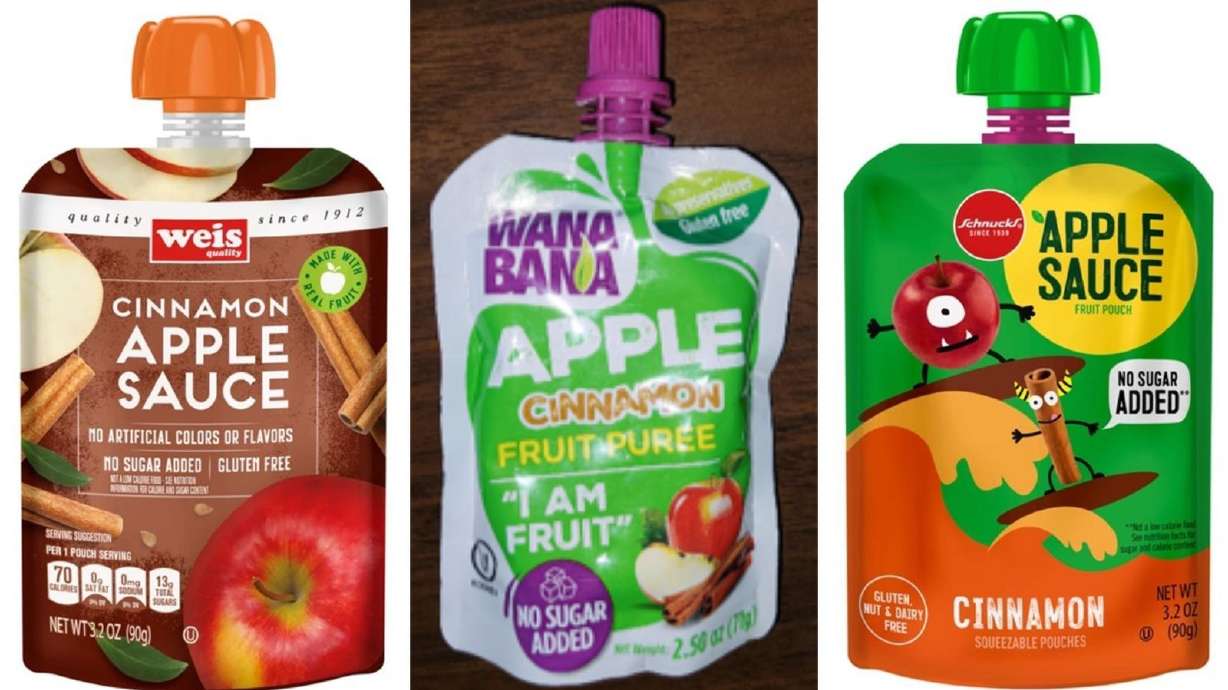FDA Finds 2,000 Times Higher Than Proposed Standards Lead Levels In Cinnamon Applesauce Pouches
In a recent FDA investigation, they found 2,000 times higher than proposed standards lead levels in cinnamon applesauce pouches. Discover the alarming revelation raising serious concerns about food safety and the integrity of the supply chain.
Author:Rhyley CarneyReviewer:Paula M. GrahamDec 20, 202317.9K Shares304.9K Views

Recent inspections by the US Food and Drug Administration (FDA) have revealed alarming levels of lead contamination in cinnamon samples linked to applesauce pouches. The agency found 2,000 times higher than proposed standards lead levels in cinnamon applesauce pouchesraising significant concerns about food safety and the integrity of the supply chain.
Contamination Levels 2,000 Times Higher Than Proposed Standards
During a routine inspection of an Austrofood facility in Ecuador, FDA investigators discovered lead levels in cinnamon samples that were over 2,000 times higher than the proposed international standards.
The FDA reported that the contaminated samples contained "5110 parts per million (ppm) and 2270 ppm," while the Codex Alimentarius Commission is considering a maximum level of just 2.5 ppm for lead in bark spices, including cinnamon, by 2024.
The FDA's ongoing investigation has linked these high lead levels to cinnamon applesauce pouches sold under the WanaBana, Weis, and Schnucks brands, prompting a recall of these products. The agency has reported at least 69 cases of illnesses in children under six years old due to these products. Additionally, the US Centers for Disease Control and Prevention has received reports of 205 confirmed, probable, or suspected cases across 33 states.
Jim Jones, an FDA's deputy commissioner for human foods told Politico, “We’re going to chase that data and find whoever was responsible and hold them accountable.” This comment reflects the agency's commitment to addressing the issue and ensuring food safety.
Possible Causes And Health Implications
Dr. Diane Calello, from the New Jersey Poison Control Center, highlighted the prevalence of contaminated spices, stating, “But then we do sometimes see intentionally contaminated products that are sold by weight. And the best way to make something heavy is to put metal in it, right?” This observation suggests a possible motive behind the contamination: economically motivated adulteration.
Lead is a toxic metal with no safe level of exposure, particularly harmful to children. It can cause developmental delays and various health issues, including head, stomach, and muscle aches, vomiting, anemia, irritability, fatigue, and weight loss. The FDA recommends blood tests for anyone who may have consumed the recalled products.
Response And Investigations
The FDA's investigation suggests the possibility of intentional contamination in the supply chain. AustroFood, the manufacturer of the recalled products, has pledged to reimburse customers for lead tests, indicating the seriousness of the situation. However, the FDA faces limited jurisdiction in Ecuador, complicating the investigation.
Officials have also struggled to remove the contaminated pouches from store shelves. Reports indicate that these products were still available in some Family Dollar/Dollar Tree stores as of December 19.
In addition to AustroFood, the FDA is investigating Negasmart, the company that supplied the contaminated cinnamon. The FDA is collaborating with Ecuadorian officials, who are also conducting their own investigations.
Conclusion
The FDA is actively working to determine the exact cause of the contamination. Meanwhile, state and federal health authorities are urging parents to seek medical advice and testing for their children who might have consumed the recalled products. This situation underscores the importance of stringent quality controls and the need for global cooperation in ensuring food safety.
As the investigation continues, the FDA's efforts in collaboration with Ecuadorian authorities will be crucial in preventing similar incidents in the future and maintaining public trust in food safety standards.

Rhyley Carney
Author

Paula M. Graham
Reviewer
Latest Articles
Popular Articles